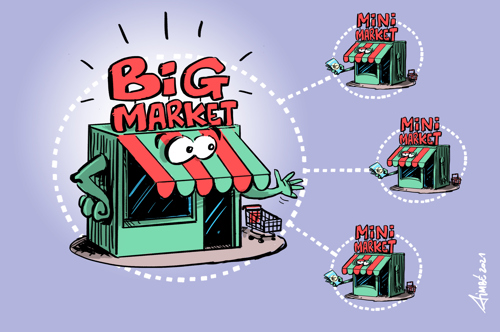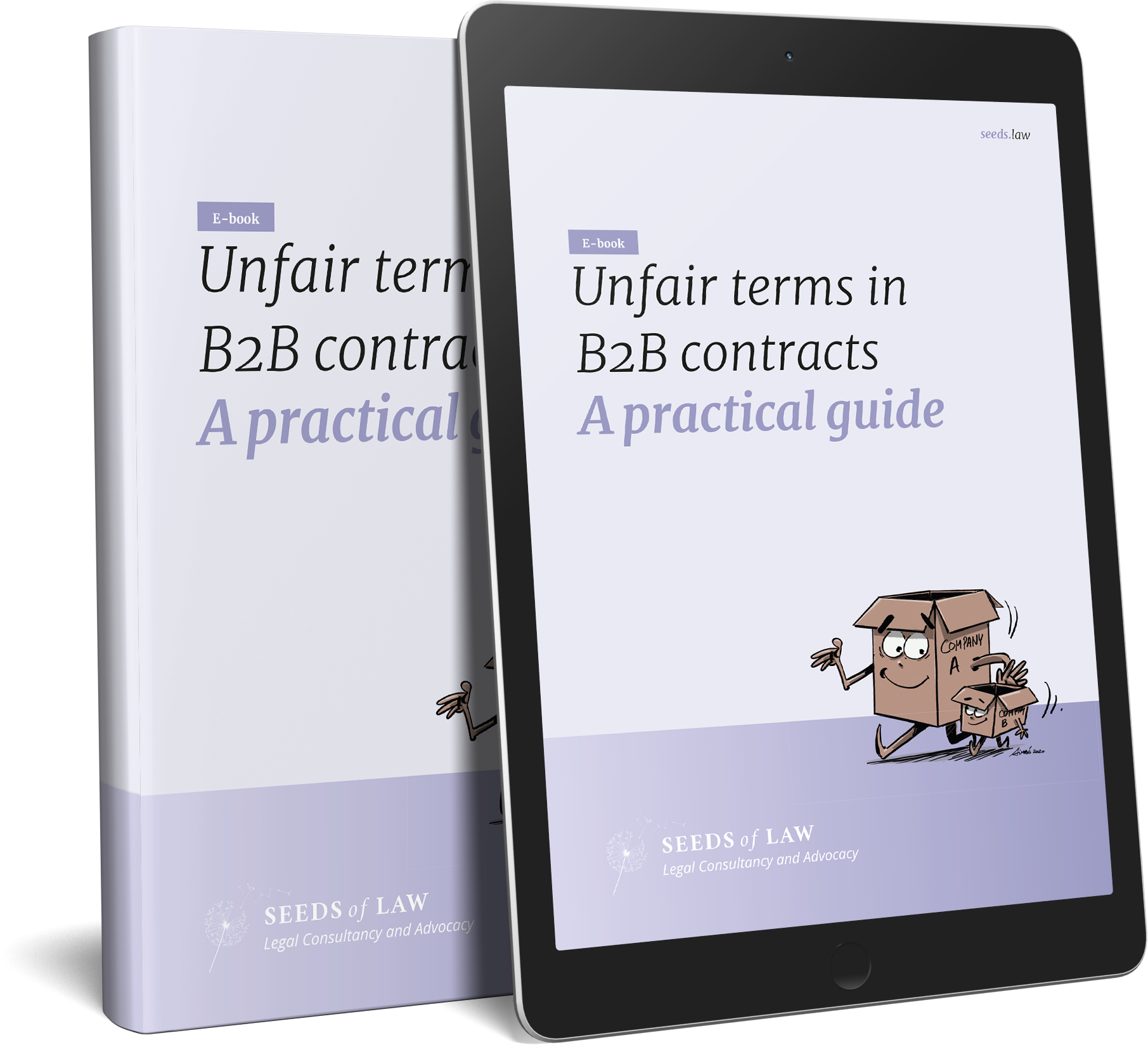- Commercial and Economic Law
- Toon Delie - Steve Griess
- B2B , B2B legislation , unlawful terms , food sector , unbalanced relationship , unfair trading practices , contractual freedom between businesses , agriculture and food supply chain
It is perfectly normal for everyone to find their favourite products in the supermarket. Unfortunately, this sometimes conceals a difficult relationship between suppliers and their clients.
Often, the supply of these products is the result of tough and bitter negotiations between supermarkets and their suppliers. Several recent press articles and documentaries have shown that suppliers are often in a very weak economic position compared to the big players.
To put an end to these, sometimes, unbalanced relationships, a directive was issued on unfair trading practices between companies active within the agricultural and food supply chain. Since this directive had to be transposed into Belgian law, it was necessary, despite the recent introduction of the B2B legislation, to intervene again in the contractual freedom between businesses.

1. Why?
When the Belgian legislator adopted the B2B law in April 2019, it was not the only one to interfere in the contractual and commercial relations between enterprises. In the same month, the European Parliament adopted the Directive on unfair trading practices in business-to-business relationships in the agriculture and food supply chain.
The food supply chain is characterised by a large number of initial producers (farmers and manufacturers) and a wide consumer market, with only a handful of buying offices and supermarket chains in between. This is referred to as an hourglass model, which in itself leads to a major imbalance in the economic and legal power relations between the various actors.
This prompted the European legislator to ban a series of specific trading practices and clauses within this sector.
This directive was to be transposed in the national Member States by 1 May 2021 and to enter into force on 1 November 2021. However, today, on 15 December 2021, the final transposition law was published in Belgium.
2. Who is involved?
The Directive aims to curb a number of existing trading practices within the food supply chain. The scope is very broad.
All B2B agreements between buyers and suppliers in the agricultural and food supply chain will have to comply with it unless the supplier has an annual turnover in excess of €350 million. The latter are therefore considered to be large suppliers, who need less protection.
In addition, the Directive applies to activities in respect of all food and agricultural products: perishable and non-perishable, natural or processed, for human or animal consumption.
It is therefore clear that this legislation will apply to just about every player and every agreement on foodstuffs.
Furthermore, it makes no territorial distinctions. As soon as either the supplier or the buyer is established in the European Union, the laws will have to be respected.
3. What does the adopted transposition law provide for?
First of all, the Belgian law goes further than the minimum harmonisation proposed by the EU in certain areas. As regards content, both unlawful terms and unfair market practices can be identified within the new B2B regulations.
With respect to these unlawful practices, a distinction is also made between black list clauses (which are always prohibited) and grey list clauses.
3.1 Black list clauses
The following clauses are in any case considered to be unlawful:
- Payment terms that are longer than 30 days;
- Cancellation terms that are too short to find an alternative (less than 30 days before delivery is considered too short);
- Unilateral modification of essential terms of the contract;
- Payments not related to the sale of the products;
- Payments for spoilage or loss without any fault on the part of the supplier;
- Unlawful acquisition, use or distribution of trade secrets;
- Threatening or using commercial retaliation;
- Providing fees for handling complaints.
3.2 Grey list clauses
Relating to the grey list clauses there is a presumption of illegality. These clauses all concern costs that the buyer charges to the supplier in return for acceptance into its network.
They are:
- the return of unsold products without payment;
- fees for storage, display or inclusion in the range;
- financing by the buyer of discounts and promotions;
- payments for advertising and marketing costs;
- payments for personnel setting up sales areas;
The presumption of illegality of these grey list clauses can be rebutted by:
- agreeing them clearly and unambiguously in the supply agreement;
- adding a written estimate of the amount to be paid, accompanied by an estimate of the costs and the elements on which this calculation was based.
In other words, a clause that is considered a grey list clause could be declared valid if the supplier knows exactly what he is committing to, in principle and in figures.
The choice of these clauses must therefore be clearly justified.
Moreover, an estimate of the costs and the economic impact must be added to these clauses.
The latter is a remarkable fact in itself. Courts will therefore be able to clearly use these calculations to decide whether or not a clause is unlawful.
4. Sanctions
As with other regulations on market practices, unlawful clauses can be declared null and void and unfair trading practices can be prohibited. The Economic Inspection will also play its role as enforcement authority with broad investigative powers . It should be noted that anonymity of the complainant is a possibility.
This can lead to administrative fines as well as the publication of decisions and parties that violate the law ('name and shame').
5. When to apply?
The transposition law applies to all new agreements concluded immediately after its publication. For existing agreements, a transitional period of 12 months applies, during which the necessary adjustments can be made.
6. Conclusion
All players in the agricultural and food supply chain have to deal with these new regulations in the short term.
They would therefore do well to prepare thoroughly for this new legislation.
First of all, an assessment must be made of the existing agreements to adapt these if necessary. Furthermore, it is equally essential to scrutinise current commercial practices and negotiation methods and adjust them where necessary. In this context, it will also be of great importance that the businesses concerned inform their sales or purchasing departments sufficiently, as this will have a significant impact on their (negotiation) practices and the agreements they conclude.
If you would like more information on this subject or if you would like to be assisted, please do not hesitate to contact our specialists at info@seeds.law or +32 (0)2 747 40 07.
False Read also
Discover our e-book about unfair terms in B2B contracts
In our e-book “Unfair terms in B2B contracts” you will discover a number of interesting tips to familiarize yourself with the new principles of the B2B law.




